#693 Turning the tide on Galiano
Rising Tides: Reflections for Climate Changing Times
by Catriona Sandilands (editor)
Halfmoon Bay: Caitlin Press, 2019
$24.95 / 9781773860183
Reviewed by Theresa Kishkan
*
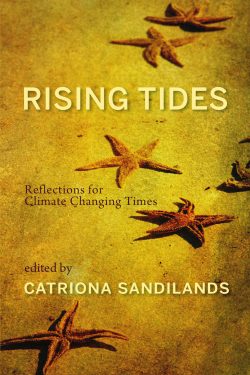 As I write this review, fires are raging in California and Australia, and Venice is experiencing the worst flooding in fifty years. (The Guardian newspaper reported that the Veneto’s regional council rejected a plan to combat climate change minutes before its offices on the Grand Canal were flooded; it also reported that sites in Stratford-on-Avon associated with Shakespeare were being protected from flooding during the wettest autumn on record.) Looking out my kitchen window, I see dozens of dead young Western red cedars in the woods beyond my house, victims of two summers of extreme drought. Carbon emissions are the primary agents driving global warming and human beings are not doing particularly well in acknowledging their own dependency on fossil fuels. Many of us feel hopeless in the face of the climate emergency.
As I write this review, fires are raging in California and Australia, and Venice is experiencing the worst flooding in fifty years. (The Guardian newspaper reported that the Veneto’s regional council rejected a plan to combat climate change minutes before its offices on the Grand Canal were flooded; it also reported that sites in Stratford-on-Avon associated with Shakespeare were being protected from flooding during the wettest autumn on record.) Looking out my kitchen window, I see dozens of dead young Western red cedars in the woods beyond my house, victims of two summers of extreme drought. Carbon emissions are the primary agents driving global warming and human beings are not doing particularly well in acknowledging their own dependency on fossil fuels. Many of us feel hopeless in the face of the climate emergency.
Rising Tides: Reflections for Climate Changing Times, edited by writer and environmental scholar Catriona Sandilands, is a timely book. It’s a gathering of writing – poetry, literary non-fiction, short fiction, and hybrid forms — exploring our relationships to the world as it is, has been, and is in serious danger of becoming. Beyond the individual pieces in the collection, there’s a sense of conversation, of talking and sharing ideas, memories, strategies, and the result is a compelling field-guide to ways we might proceed as local and global citizens.

Some of these pieces arose out of discussions among many of the contributors who gathered on Galiano Island and the island serves as a mediating locus. Levi Wilson opens the book with a Territorial Acknowledgement in concert with his partner Emily Menzies. “Through my grandmother,” he tells us, “I am a member of the Gitga’at First Nation, with strong familial connections to the Hwlitsum and Lamalcha peoples. I would like to acknowledge the shared, asserted, and unceded territory of the Penelakut, Lamalcha, other Hul’q’umi’num-speaking peoples, and any other peoples who hold rights and responsibilities in and around the territory now known as Galiano Island…” Emily adds, “By insisting on acknowledging place, and the peoples of our place, territorial acknowledgements also provide an opportunity to learn about histories, current politics, teachings, and relationships that can contribute to rebuilding ecological, social, and economic sustainability in our communities.” This strikes me as a sensible and lively way to situate the book as a whole. By knowing where we are on the planet, by knowing its deep history, even beyond the human layers, perhaps we can begin to understand the requirement that we act, with some urgency, to alter the course of climate change.
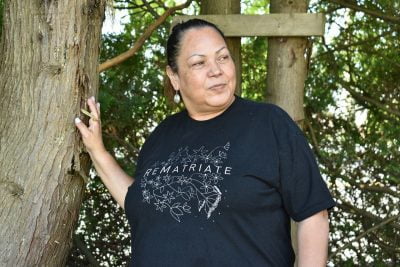
Rosemary Georgeson remembers a childhood near Active Pass, where “there used to be so much bulb kelp that it looked/like you could walk across the bay on it.” This echoes the stories many of us grew up with, stories of spawning creeks richly abundant, beaches white with oysters. Her poem concludes, “I hope that one day my grandchildren will get to see and smell/some of the things I have shared here.” This sentiment reaches ahead to the final essay in the collection, to the coast of Connecticut, where Zoe Todd’s “Tidal” expresses a similar hope for the future: “I want to know that, after all is said and done, there are still moon and sea and stars and sand. And that matters more than anything. Someday, maybe, some other order of beings will stare out at those tidal waves and wonder: Who else has gazed upward at this harvest moon?” Between those perspectives, Betsy Warland is mesmerized by the kelp’s “undulating sway, its anchoring holdfast, elegant stipe….”

Time has an abiding place in this collection, one that is key to the importance of stories and action. Places and plant communities are remembered and their changing populations noted, over years, even decades, and the effect of this is cumulative. Richard Pickard recalls the use of glittering wood moss in the Southern Interior as insulation in pioneer cabins and how it can be viewed as an indicator species of both settlement and abandonment. Recent research suggests it may not survive climate change. His meditation on this unassuming species calls across the pages to Holly Schofield’s search for twisted oak moss on Galiano Island. This careful (and caring) attention to the plants writers have known for entire lifetimes helps the reader to understand that everything is at risk. Schofield writes, “If twisted oak moss vanishes from this intermingled ecosystem we call Earth — an ecosystem that includes us — the outcome may be minimal. Or it maybe be a cascading effect that will become clear only after years of study.”
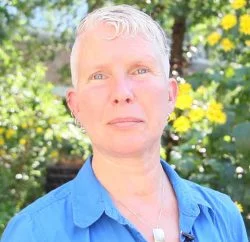
Catriona Sandiland’s own contribution to this book is a cautionary tale, “Concerto for Scotch Broom”. In gracefully modulated movements, the poem provides orchestration for a plant that is both striking and invasive. The obligato? Lyrical passages from Robin Wall Kimmerer’s Braiding Sweetgrass: Indigenous Wisdom, Scientific Knowledge and the Teachings of Plants, to remind the reader that there’s more to restoring healthy ecosystems than simply eradicating invasive plants. I thought of our local high school’s science fair perhaps two decades ago when a resourceful young woman made beautiful paper from Cytisus scoparius, demonstrating that adversity can sometimes become an opportunity. I also thought of the people in my community who believe that glyphosate is somehow an appropriate measure to eradicate Japanese knotweed growing in ditches that drain into salmon creeks and estuaries, ditches populated by amphibians, haunted by songbirds in the thimbleberry. “Species composition may change/but relationship endures.”
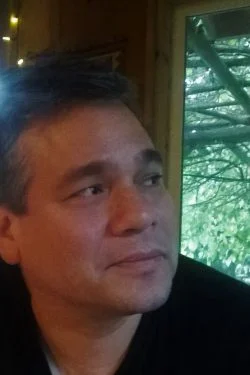
Talking about climate change acknowledges that language is important, vital to the way we understand ecologies, histories, and possibilities. What if we could hear those stories inflected by the languages that preceded our own in this geography of islands, discrete waterways, long fjords, and mountains? Philip Kevin Paul, of the W̱SÁNEĆ Nation, provides a small window into a time when “My old people made a refuge/For our language.” Looking through a future window, Lauren Magner and Andrew Simon provide a “Key to the Conifers of Galiano Island, 2150” in which Hul’q’umi’num’ names are “returned” to the place they never left.
The process of telling stories and listening to them can be painful as well as hopeful. Kyo Maclear’s “Love and Lifeboating” positions a father’s progressive dementia against the perilous state of the world’s oceans and the populations who live near them. Jamie Snook considers ice and what the loss of it means to people dependent on it for travel and hunting. Laurie D. Graham summons “the smell of thistle, the sweetness of an open field under sun” in the shadow of oil refineries and tank farms on the North Saskatchewan River of her childhood. Sara Barron pays attention to both the challenges of talking about climate change with young children and the importance of the simple pleasure of watching those children swing on a cherry tree rooted in the good earth below the pavement of a Vancouver street.


Are there solutions in Rising Tides? Does a reader come away with a clear sense of what good citizens can and should be doing locally and globally? That depends on what you expect solutions to look like. There’s no succinct equation or formula. But there are lots of thoughtful ideas to encourage individuals and communities to make the changes that are possible and necessary. Is it too late? Timothy Leduc observes:
These issues are not outside us, but are woven deep within: in our intensifying attachments to modern conveniences, ever-quickening pace, growing consumption of resources, rising intensity of travel as kilometres driven and flown increases each year, and packaged green consumerism.
The writers gathered on Galiano Island and farther afield, telling their stories, remembering what Sharon Butala so beautifully called “the perfection of the morning.” All are worth listening to. Let them inspire you. For a little while, put down your devices, the ones you believe you cannot live without, and which accelerate the speed of resource extraction, abundant waste. Put them down. Unplug. We can add our own voices, our own hope, and our own loss, but first we need to pay attention to the mosses and dying cedars, the vanishing kelp forests, the communities of orchids and songbirds, the languages that once held these natural histories so precisely that a word could bring a world to life.
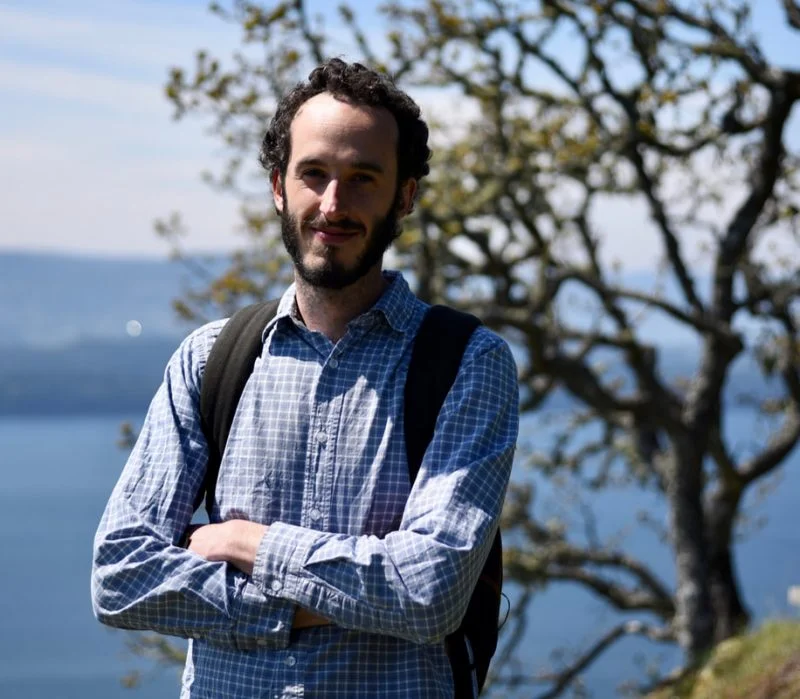
*

Theresa Kishkan lives on the Sechelt Peninsula with her husband, John Pass. She has published 14 books, most recently Euclid’s Orchard, a collection of essays about family history, botany, mathematics, and love (Mother Tongue Publishing, 2017), and her novella, The Weight of the Heart, is due out from Palimpsest Press in the spring of 2020. She runs a small press devoted to the literary novella, Fish Gotta Swim Editions, with her friend Anik See.
*
The Ormsby Review. More Books. More Reviews. More Often.
Publisher and Editor: Richard Mackie
The Ormsby Review is a journal service for serious coverage of B.C. books and authors, hosted by Simon Fraser University. The Advisory Board consists of Jean Barman, Robin Fisher, Cole Harris, Wade Davis, Hugh Johnston, Patricia Roy, David Stouck, and Graeme Wynn. Scholarly Patron: SFU Graduate Liberal Studies. Honorary Patron: Yosef Wosk. Provincial Government Patron since September 2018: Creative BC
“Only connect.” – E.M. Forster



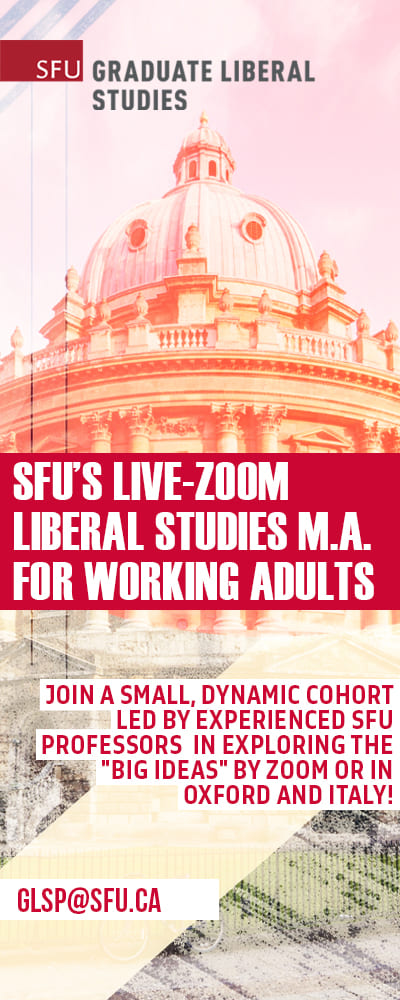



























4 comments on “#693 Turning the tide on Galiano”